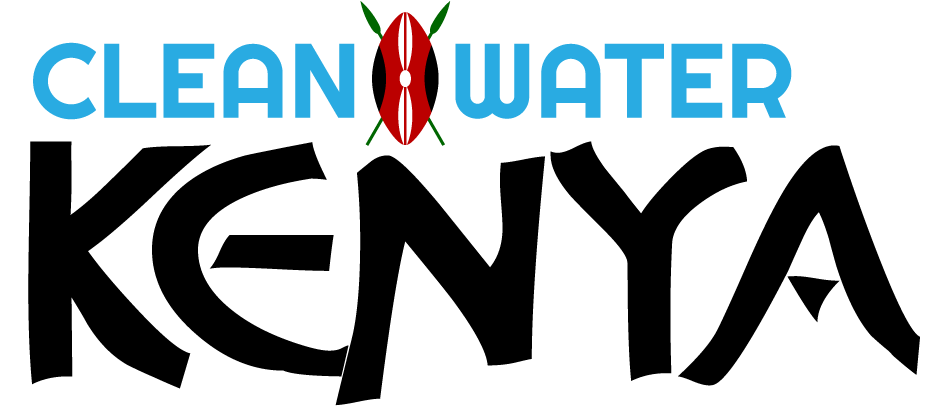Greater Than Half Of All Kenyans Do Not Have Daily Access To Clean Water
Prior to modern telecommunications and travel Africa was known as ‘The Dark Continent.’ Due to its almost complete inaccessibility, only the wealthy or the most ardent adventurers ever set foot there. No longer struggling with outdated technology nor steeped in past practices, some African nations today are fast becoming powerhouses in the areas of technology, energy and mineral production. However, one thing many African countries still lack today is clean potable water.
Clean water to First World Nations is a given. Modern water and sewage systems have been with us for generations. We see going to the kitchen sink for a glass of cool clean water as no longer a luxury. It’s as common, accepted and expected as the sun rising in the east and setting in the west. Purified tap water is at our fingertips. A slight turn of the faucet and we can choose hot or cold running water, the rate of flow and for how long we wish it to run. Technically speaking, once we turn on the faucet, we can let the clean water run forever.
Not So In The African Nations That Are Underdeveloped.
Turning on a faucet and receiving clean hot and cold running water is a luxury, a dream, an inconceivable concept to most of the people with which Clean Water Kenya works.
Can you imagine having to get up before the crack of dawn every day, gathering however many 5 or 10 gallon jerry cans you can carry, or rounding up your donkey and strapping 7 to 8 cans to it and then heading out over dry, dusty, rocky terrain for the next 4-6 hours in search of water? Can you imagine doing this at the tender age of 7 or 8 or being a mother with children in tow? Can you imagine doing this and knowing all the while that the water you will gather from whatever watering hole or small stream or catchment you frequent will be polluted with the bacteria that cause cholera, typhoid and a whole host of other diseases that can, and so often do, kill those that drink it? And can you imagine what it feels like to offer this to your loved ones knowing that you could make them sick, or even worse, cause their deaths?
I can’t. I don’t know anyone in the modern world that can because they’ve never been in that position. However, I have met many Kenyans – Maasai, Kampo, Samburu, Kikuyu, Luhya, Meru and others – that have and do every day. I know Kenyans that have lost loved ones due to polluted drinking water. The most vulnerable are infants, the very young and the elderly. Polluted water due to waterborne bacteria is the greatest cause of disease and death in the rural regions of Kenya.
Clean Water Kenya is working hard to change this. We supply free-of-charge locally manufactured portable bio-water filtration systems to remote villages in the Rift Valley and eastern Kenya. We labor in areas where there is a definite water crisis. Water scarcity, turbidity, and bacterial pollution are the norms. As a CDC physician friend of mine once said, “You know you work with water that is the most turbid and polluted in the world, right?” After answering, “Yes,” he quipped, “God bless you!” He should know better than anyone what the water is like in the Rift Valley. He’s spent years working and doing research in the same region as us.
Water scarcity is a result of short rainy seasons, often only one per year. Few fresh water catchment systems and a lack of water related infrastructure add to the problem. Large water storage facilities on a community scale are non-existent. Heavy turbidity, between 1500-2000 on the Formazin Scale, is the result of extremely fine topsoil, almost like talcum powder, which when stirred up by the constant breeze, never settles in standing water, which is the main source of drinking water for rural Kenyans.
Bacterial pollution results from both animals and humans using the same water sources.
An ever-growing population of over 48 million people live in Kenya; more than 10 million in the Rift Valley alone. Couple these numbers with the lack of clean potable water and you can see how huge the problem is.
Over 24 million Kenyans do not have access to clean water on a daily basis. There are many reasons as to why: Kenya is a developing country; governmental indifference and corruption is rampant at all levels; ethnic divisions are constantly in play; lack of infrastructure and education and a population of which 42% live in poverty all contribute to the problem. These are just some of the obstacles Kenya has to overcome to get to the point where clean water becomes an issue of national importance and is someday moved on.
Until that day when clean, potable water becomes a given in Kenya, Clean Water Kenya will continue to serve those most in need in the Rift Valley and beyond because simply put, we believe Clean Water Is A Human Right. Everyone deserves clean water and the right to a healthy life.
